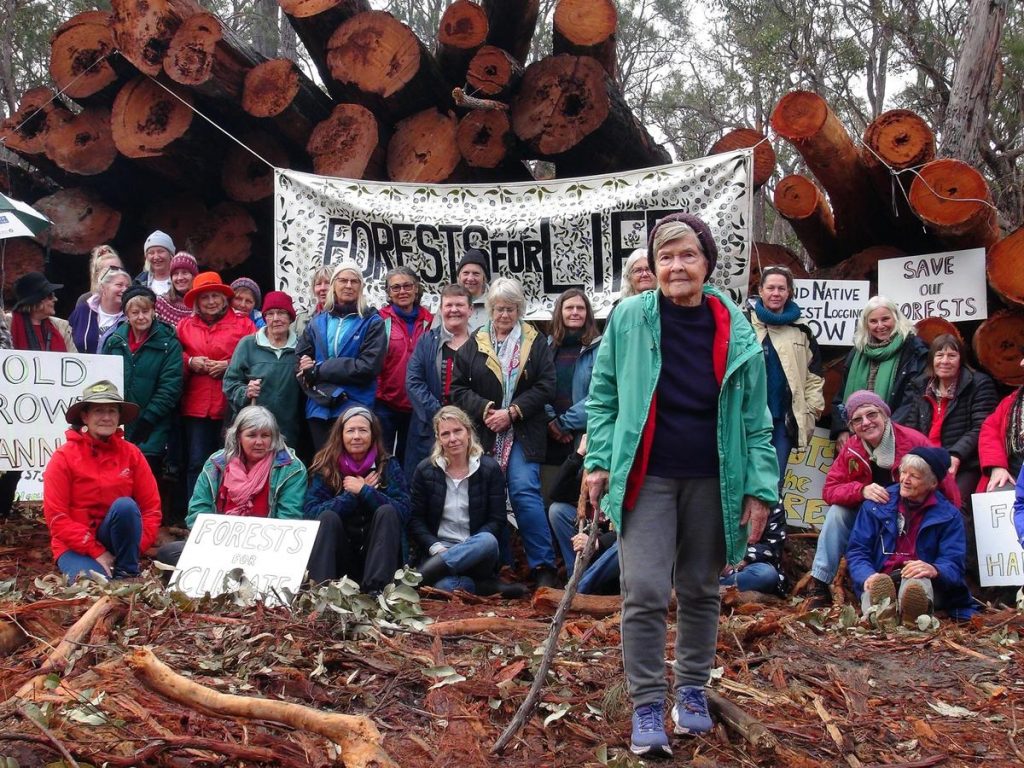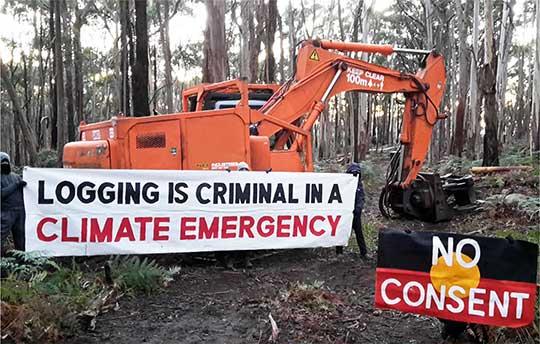Criminalising protest is bad for democracy
More anti-protest legislation introduced in Victoria

How many times do we have to say this? Criminalising protest is bad for democracy, undermines human rights & ultimately makes things worse.
As part of an alarming national trend of undemocratic infringements on protest rights, the Victorian Government has introduced the Sustainable Forests Timber Amendment (Timber Harvesting Safety Zones) Bill 2022 into parliament.
If passed, it will see forest activists in Victoria face increased fines or up to 12 months in jail, and provide ‘authorised officers’ with broad and dangerously intrusive stop and search powers. It will criminalise the possession of objects that have been used safely in nonviolent forest protests for over forty years. Many world renown National Parks and significant heritage areas throughout Australia have been protected by just these sorts of protests.
The Victorian government is framing the legislation in terms of safety for timber workers. Similar claims made by the Queensland government when introducing similar laws in 2019 were found to be based on old, inaccurate and spurious claims. No evidence of any direct workplace risks have been provided in the context of the Victorian Bill.

The Victorian Bill closely follows the New South Wales legislation last month that introduced penalties of up to two years’ jail for protesters who blocked roads, ports or rail lines. It also follows Victorian legislation targeting animal rights protesters that was passed in March 2022.
New anti-protest laws were also passed in Tasmania, which could see protesters fined up to $12,975 or jailed for 18 months for a first offence, and organisations up to $103,800, if they were judged to have obstructed workers or caused “a serious risk”. An earlier version of these laws were found to be unconstitutional by the High Court as they infringed upon implied freedom of political expression.
Liberty Victoria president Michael Stanton has stated the latest Victorian Bill is “plainly intended to have a chilling effect on protest activity”.
“Such protesters have the right to freedom of expression and peaceful assembly under the Victorian Charter of Human Rights, and are protected by the implied freedom of political communication under the Constitution,”
This raft of new anti-protest legislation targets human rights, climate and environmental defenders and any dissenters who ‘get in the way’. The new and disproportionate penalties are specifically designed to punish protest activity that hinders, obstructs or prevents an activity occurring.
Protest is, by its very nature, disruptive to everyday life, including disruption of traffic, annoyance and even harm to businesses. Courts and international human rights jurisprudence recognises this. Protests, whether they be sit-ins, blockades, marches or assemblies, cause delays, annoy powerholders and interrupt injustices. Legislation that criminalises any protest activity undermines all protest rights.
MALS is part of a massive array of civil society, legal and human rights organisations and networks across Australia and internationally working to protect our democratic space. These draft laws are entirely unnecessary, undemocratic and undermine critical civil and political rights. They must be stopped.
Further:
Add your name to the petition by Environmental Justice Australia here.
Environmental Justice Australia and the Human Rights Law Centre have released a joint statement here.
Global Warning: the threat to climate defenders in Australia report (2021) identified a clear and alarming trend that sees climate defenders increasingly being targeted and suppressed by Australian governments.
